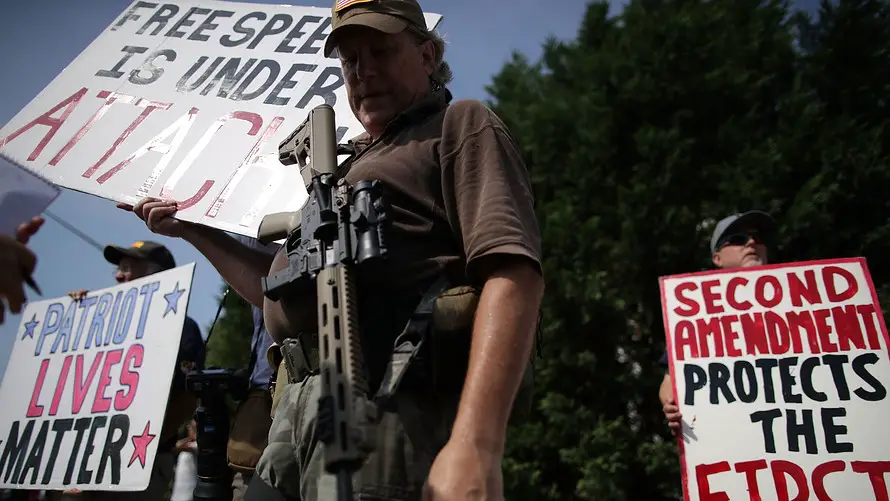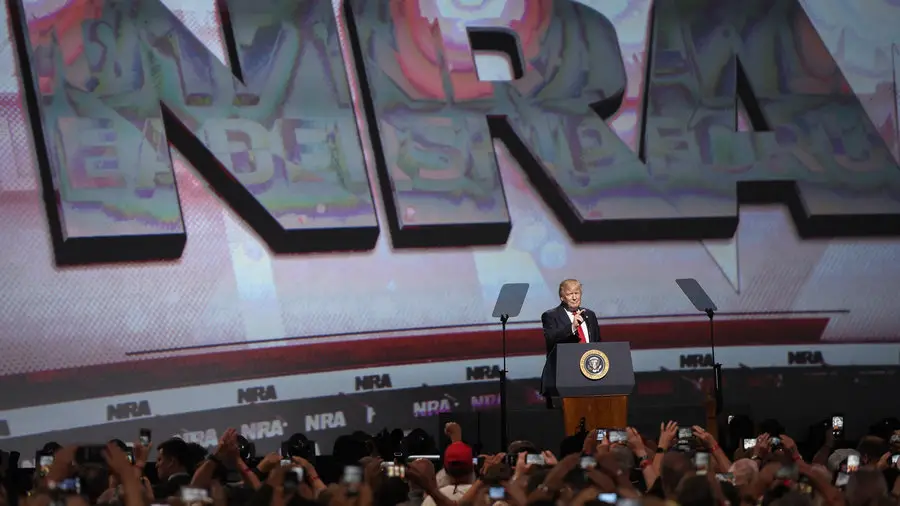On the first night of this month’s NRA Convention in Dallas, President Trump addressed thousands of the nation’s strongest proponents of gun rights. “Your Second Amendment rights are under siege,” he said to the roaring crowd. “But they will never be under siege as long as I am president.”
It was the beginning of a weeklong event that seemed to provide a much-needed source of energy to the NRA’s base. Though, over the past several years, the organization has weathered the criticisms that tend to follow mass shootings, the aftermath of the high school massacre in Parkland, Florida, is proving to be a new sort of challenge before the midterm elections.
After a gunman killed 17 people at Marjory Stoneman Douglas High School, several teenage survivors began a nationwide campaign for gun control and took aim at the NRA’s influence over Congress. Their activism culminated in the March for Our Lives on March 24, which was attended by hundreds of thousands of people in Washington, D.C., and spawned smaller marches in cities around the country.
In the process, however, the Parkland activists made a powerful enemy of the NRA. The anti-gun figureheads have repeatedly criticized elected officials for receiving donations from the NRA and have called for gun-control measures opposed by its members.
In response, the pro-gun organization has fought to discredit the work of these activists and mobilize its base in an effort to save itself. Oliver North, the incoming NRA president, went so far as to accuse them of “intimidation and harassment and lawbreaking” and said that the organization was being subjected to “civil terrorism” in a way that he felt was worse than anything that occurred during the Jim Crow era.
With support for gun control reaching an all-time high among the American public, the NRA is depending on the upcoming midterm elections to maintain the status quo. As candidates are facing more scrutiny from their constituents, they’re in a position that allows them greater flexibility in defying the NRA agenda.
In more conservative areas, it can still be a risky move. The NRA has millions of dollars at its disposal, and donations only grew after the Parkland shooting. Aside from money, the organization has the power to mobilize its 5 million members for or against any particular candidate through its employment of a grading system for members of Congress based on their statements regarding gun control and their voting record on gun rights.

But this influence hasn’t stopped elected officials and candidates around the country from defying the NRA’s agenda. Just this month, the Republican governor of Oklahoma, Mary Fallin, vetoed an NRA-backed bill that would have allowed adults in the state to carry firearms without training or a permit.
In March, Florida governor Rick Scott signed tighter gun restrictions into law, leading to a lawsuit led by teenage NRA members who would be affected by new age restrictions.
In their efforts to receive a congressional majority in November, Democrats are refusing to back down on talks of gun control, even in areas where their chances are slim despite the advantage of a growing anti-Trump sentiment.
The ultimate judge of the NRA’s success in November will most likely be voter turnout. The Parkland activists have made mobilizing young voters one of their strongest priorities, with volunteers at the March for Our Lives registering thousands to vote.
In response, President Trump has stressed the importance of gun-rights advocates remaining active. “They’re fighting like hell, and you’re complacent”, he said during his NRA convention speech, referring to the work being done by the gun control activists.
The real question of complacency, however, falls upon those who find themselves in the middle of this ideological war over the Second Amendment. If the everyday American is willing to voice their opinion at the polls, the NRA could face a defeat like it has never seen before. But if they choose to remain complacent, the status quo could continue for years to come.

















